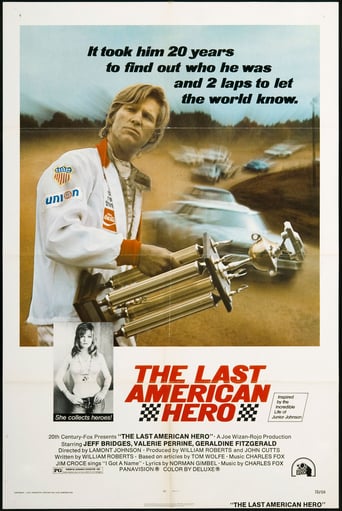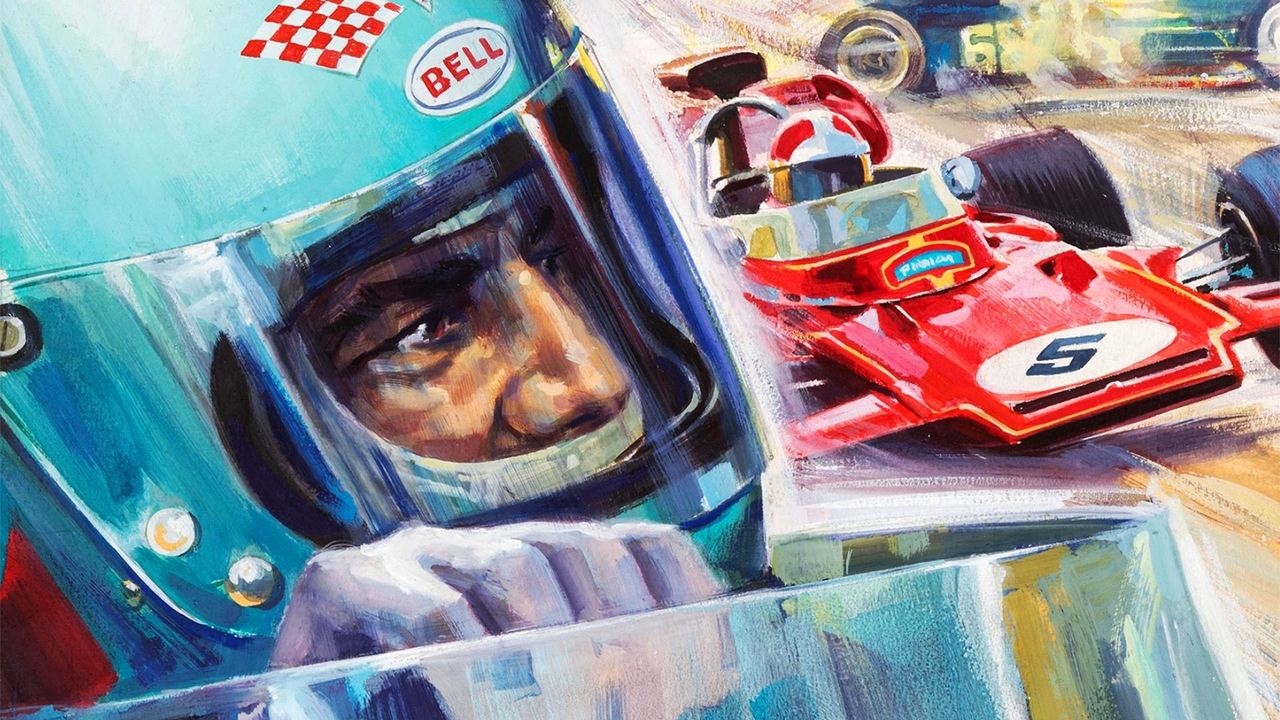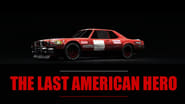SnoopyStyle
Elroy Jackson Junior (Jeff Bridges) drives fast along the back roads of North Carolina delivering moonshine whiskey for his father (Art Lund). Their still explodes and father is sent to jail. Junior starts racing dirt tracks and demolition derby for small time operator Hackel (Ned Beatty) to raise money for his father's legal defense. He builds his own cars. His brother Wayne (Gary Busey) tries to get him a garage mechanic job and his mother is worried about safety. He meets sweet Georgia peach Marge (Valerie Perrine) working one of the races. The races get bigger and bigger.This has a great sense of the backwoods world of racing. Bridges is terrific as a man waiting to explode. It's got good car sequences. It also has the great Jim Croce song "I Got a Name". The story needs a bit more drama. Junior needs to overcome something insurmountable. It all feels rather predetermined but it's compelling nevertheless.
Woodyanders
Jeff Bridges gives a typically splendid, boyishly affable and charming performance as Elroy "Bobcat" Jackson, Jr., a cocky, rebellious, recalcitrant, trouble-making hot dog hillbilly moonshine runner who becomes a professional stock car racer and demolition derby driver in order to raise enough cash to get his dear ol' crusty, mule-headed pappy (a marvelously gruff Art Lund) out of jail. Assisted by his loyal, but hot-tempered brother Wayne (the always fine Gary Busey) and against the wishes of his staunch, worrisome mother (a wonderfully indomitable Geraldine Page), Elroy aspires to achieve champion driver status in the ferociously competitive world of professional stock car racing, thus having both his stubborn pride and homespun integrity put to the ultimate test in the process.Inspired by a Tom Wolfe "Esquire" article on flamboyant real life racing legend Junior Johnson (who worked as a consultant and technical adviser on the film), this spunky little number offers both a glorious celebration and a compelling exploration of rugged individualism and that great quintessentially all-American desire to be somebody in life. Lamont Johnson's sharply perceptive direction, ably complimented by George Silano's lively, breathtaking cinematography and Charles Fox's twangy country score (Jim Croce's blustery "I Got A Name" makes for a fantastic life-affirming theme song), astutely pegs the rowdy, boisterous, danger-ridden, and testosterone-soaked macho atmosphere of the racetrack milieu (the race scenes are suitably wild and thrilling) and delivers a rich, flavorsome evocation of humble, dirt poor, strongly family-oriented Southern backwoods America. William Roberts' acidulous script affects a cynically barbed and askew point of view in its penetrating portrait of America's love for do your own thing outlaw nonconformists and how winning inevitably comes with substantial unavoidable attachments. The stand-out supporting cast includes Valerie Perrine as a sweetheart racetrack groupie, William Smith as a formidable rival driver, Ed Lauter as a sleazy corporate sponsor, Ned Beatty as an oily demolition derby manager, and Lane Smith as an antsy, burnt-out driver. A terrifically tart'n'smart slice of pure Americana story of the guts and stamina it takes to actively pursue making your dreams come true.
Geofbob
Jeff Bridges' combination of redneck roughness and choirboy sweetness is just right for this 1973 tale of a poor Southern boy, Junior Jackson, making good on the car racing track. The movie is based on Tom Wolfe's articles about the famous stock car racer, Junior Johnson, whom Wolfe dubbed "The Last American Hero". Cinematic Junior, like the real one, learns how to drive hard and fast while running the moonshine whiskey made by his father. The movie covers the first year or so of his career, from when he takes up racing to raise money while his father is in jail, until his first big win.
The movie celebrates individuality and competitiveness, but despite all his skill, guts and cheek, even Junior can't make it by himself. Real success comes only after he gives up his independent status, and agrees to drive for a car-maker (Ed Lauter). Also in support are his family, with Art Lund and Gary Busey excellent as his father and brother; and a stock car groupie (Valerie Perrine) who retains a soft spot for him, whoever else she's currently sleeping with. However, for many viewers, the main interest of the film will lie less in its plot, characterisations, or "right stuff" message, than in the atmosphere and thrills of the races which the movie graphically captures.
presumin_ed
The great American movie - fast cars, fast women (okay, woman), fast cutting. The American dream... and it happens to be true, as well! The performances had the realism I love in these classic movies from the '70s and the locations, thanks to Lamont Johnson's almost-documentary approach, are like time-travel back to those days; a by-God record of US social history. Yes, sir.



 AD
AD




